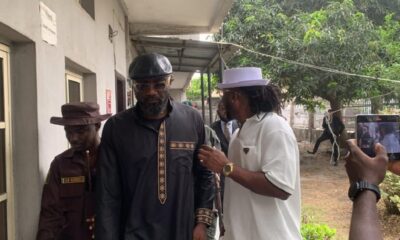Economy
SEE Current Black Market Dollar (USD) To Naira (NGN) Exchange Rate
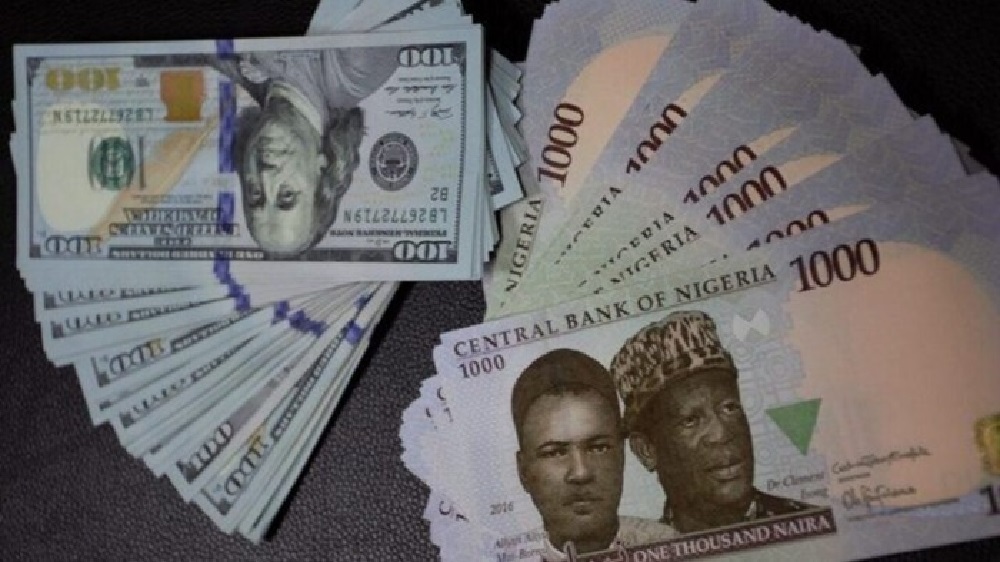
The exchange rate between the US dollar (USD) and the Nigerian naira (NGN) continues to fluctuate, influenced by economic policies, market demand, and foreign exchange availability.
Below is an overview of the current exchange rates in both the parallel (black market) and official markets.
Black Market (Parallel Market) Exchange Rate – January 29, 2025
The black market, also known as the parallel market, operates outside the regulatory framework of the Central Bank of Nigeria (CBN). Traders and Bureau De Change (BDC) operators in Lagos and other major cities offer the following rates today:
Buying Rate: ₦1,630 per $1
Selling Rate: ₦1,640 per $1
These rates are based on reports from currency traders and may vary slightly depending on location and negotiation power.
Official Exchange Rate – Central Bank of Nigeria (CBN) Rate
The CBN determines the official exchange rate, which is used for transactions involving government-approved forex allocations, import/export activities, and other formal financial dealings. As of January 28, 2025, the official exchange rate stands at:
Highest Rate: ₦1,537 per $1
Lowest Rate: ₦1,530 per $1
It is important to note that the CBN does not recognize the parallel market and has advised individuals and businesses seeking foreign exchange to conduct transactions through licensed banks and authorized forex dealers.
Factors Affecting the Naira’s Value Against the Dollar
Several factors contribute to the exchange rate fluctuations in both the black market and official forex markets. Some key influences include:
Foreign Exchange Reserves: Nigeria’s forex reserves impact the CBN’s ability to intervene in the market and stabilize the naira.
Oil Prices: Since Nigeria is an oil-dependent economy, changes in global oil prices significantly affect the supply of dollars in the country.
Inflation and Economic Policies: High inflation rates, government fiscal policies, and CBN interventions play a role in determining the naira’s strength.
Demand for Foreign Currency: Businesses, importers, and individuals requiring forex for travel, education, or medical reasons often turn to the black market when supply at official rates is limited.
Speculation and Market Sentiment: The perception of Nigeria’s economic stability, political climate, and investor confidence also influence exchange rates.
CBN’s Efforts to Curb Black Market Activities
In recent months, the Central Bank has implemented several measures to reduce dependence on the black market and improve access to forex through official channels. These include:
Strengthening forex regulations to prevent illegal trading.
Increasing dollar supply to banks to meet legitimate demand.
Encouraging foreign investments to boost forex reserves.
Promoting local production to reduce reliance on imported goods, which drives forex demand.
Despite these efforts, the parallel market remains a popular option for many due to the difficulty in obtaining forex at the official rate.
As the Nigerian economy navigates ongoing challenges, forex rates continue to be a critical concern for businesses and individuals. While the official rate remains below the black market rate, the gap between the two highlights the ongoing struggle to stabilize the naira.
For those engaging in forex transactions, it is advisable to compare rates from multiple sources and remain updated on CBN policies to make informed financial decisions.
Would you like me to include predictions on future exchange rates or additional analysis?
Economy
More Nigerians to experience poverty by 2027 – World Bank

The World Bank’s latest Africa’s Pulse report has projects a grim future for Nigeria, with poverty expected to rise by 3.6 percentage points by 2027.
Released during the IMF and World Bank Spring Meetings in Washington, DC, the report cites Nigeria’s reliance on oil, economic fragility, and governance challenges as key drivers.
It highlights the country’s structural economic weaknesses, dependence on oil revenues, and national fragility as key barriers to meaningful poverty reduction.
“Poverty in resource-rich, fragile countries, including large economies like Nigeria and the Democratic Republic of Congo, is projected to increase by 3.6 percentage points between 2022 and 2027,” the report stated.
Despite recent growth in Nigeria’s non-oil sector during the last quarter of 2024, the World Bank warns that this progress is unlikely to translate into widespread poverty alleviation due to ongoing fiscal and institutional challenges.
The report emphasizes that Sub-Saharan Africa remains the world’s poorest region, with an overwhelming 80% of the globe’s 695 million extreme poor residing there in 2024.
Within the region, half of the 560 million extremely poor people were located in just four countries, including Nigeria.
In stark contrast, South Asia accounted for 8% of the world’s extremely poor population, East Asia and the Pacific 2%, the Middle East and North Africa 5%, and Latin America and the Caribbean 3%.
The World Bank attributes the rising poverty in Nigeria and similar economies to weakening oil prices and fragile governance structures, noting: “This follows a well-established pattern whereby resource wealth combined with fragility or conflict is associated with the highest poverty rates, averaging 46% in 2024, which is 13 percentage points higher than in non-fragile, resource-rich countries.”
Meanwhile, non-resource-rich countries in Africa are experiencing stronger economic growth and faster poverty reduction, buoyed by high agricultural commodity prices and more resilient fiscal policies.
To reverse Nigeria’s downward poverty trend, the World Bank recommends reforms that prioritize inclusive economic growth and stronger public financial management.
It calls on the government to focus on “improving fiscal management and building a stronger fiscal contract with citizens to promote inclusive economic development and long-term poverty alleviation.”
Economy
SEE current exchange rate of the Dollar to Naira

What Is the Dollar to Naira Exchange Rate at the Black Market (Aboki FX)?
Here is the Dollar to Naira exchange rate at the parallel market, popularly known as the black market (Aboki fx), for Tuesday, April 23, 2025.
You can exchange your dollars for naira at the following rates:
Black Market Exchange Rate (Lagos – April 23, 2025):
According to sources at the Bureau De Change (BDC), the exchange rate at the Lagos parallel market saw traders buying at ₦1610 and selling at ₦1620 per US dollar.
It’s important to note that the Central Bank of Nigeria (CBN) does not recognize the black market. The CBN advises individuals seeking foreign exchange transactions to do so through their banks.
Dollar to Naira Exchange Rates
Market Type Buying Rate Selling Rate
Black Market ₦1610 ₦1620
CBN Official Rate ₦1591 (Low) ₦1606 (High)
Note: Forex rates vary across dealers and regions, and actual rates may differ from those listed.
Meanwhile, the Nigeria Customs Service (NCS) has announced the seizure of 298 smuggled items worth ₦7.6 billion between January and March 2025. The NCS also disclosed that it generated a total revenue of ₦1.75 trillion in the first quarter of the year.
Economy
Volvo announces termination of 800 U.S. workers, cites tariff, market decline

Volvo Group has announced plans to lay off up to 800 workers at three of its U.S. facilities over the next three months, citing ongoing market uncertainty and declining demand exacerbated by tariffs introduced under the administration of President Donald Trump.
The affected locations include the Mack Trucks plant in Macungie, Pennsylvania, as well as Volvo Group sites in Dublin, Virginia, and Hagerstown, Maryland.
In a statement on Friday, Volvo Group North America confirmed that between 550 and 800 employees would be impacted.
The company, a subsidiary of Sweden’s AB Volvo, employs nearly 20,000 people across North America.
The layoffs come amid wider turmoil in the automotive and manufacturing sectors, as shifting U.S. trade policy and a series of tariffs continue to drive up production costs. Economists have pointed to the uncertainty surrounding Trump’s trade strategy as a factor undermining both business and consumer confidence, with concerns mounting over a potential economic slowdown or recession.
According to Volvo, the company is grappling with a decline in heavy-duty truck orders, driven by instability in freight rates, anticipated regulatory changes, and the growing financial burden of tariffs. “We regret having to take this action, but we need to align production with reduced demand for our vehicles,” a company spokesperson stated in an email quoted by Reuters.
Volvo’s announcement marks another blow to an industry already navigating a complex web of supply chain challenges and fluctuating market conditions, with other manufacturers also warning of potential cost hikes and disruptions tied to global trade disputes.
-

 News13 hours ago
News13 hours ago2027: Pro-Fubara protesters want suspended Gov to run as Atiku’s VP(Video)
-

 Economy20 hours ago
Economy20 hours agoMore Nigerians to experience poverty by 2027 – World Bank
-
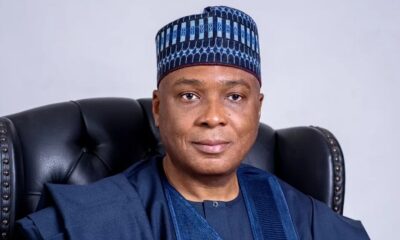
 News15 hours ago
News15 hours agoOborevwori /Okowa: PDP experiencing a rebirth and will soon bounce back-Saraki declares
-
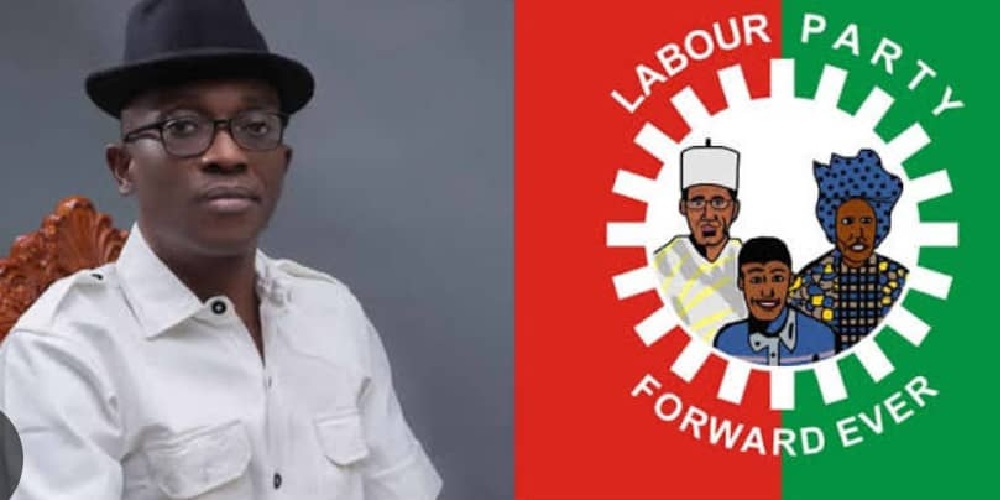
 Politics20 hours ago
Politics20 hours agoLabour Party reaffirms Abure-led leadership after Supreme Court judgment
-

 News20 hours ago
News20 hours agoGovernor Oborevwori’s Defection: A Masterstroke That Handcuffs Delta’s Opposition
-
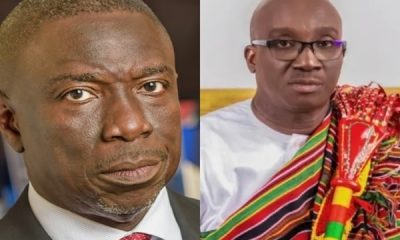
 News13 hours ago
News13 hours agoEdo poll: How APC allegedly offered witnesses N30m bribe
-

 News20 hours ago
News20 hours ago2027 done deal, more governors joining APC – Ganduje declares
-

 News13 hours ago
News13 hours agoFlights resume as NiMET unions suspend strike












